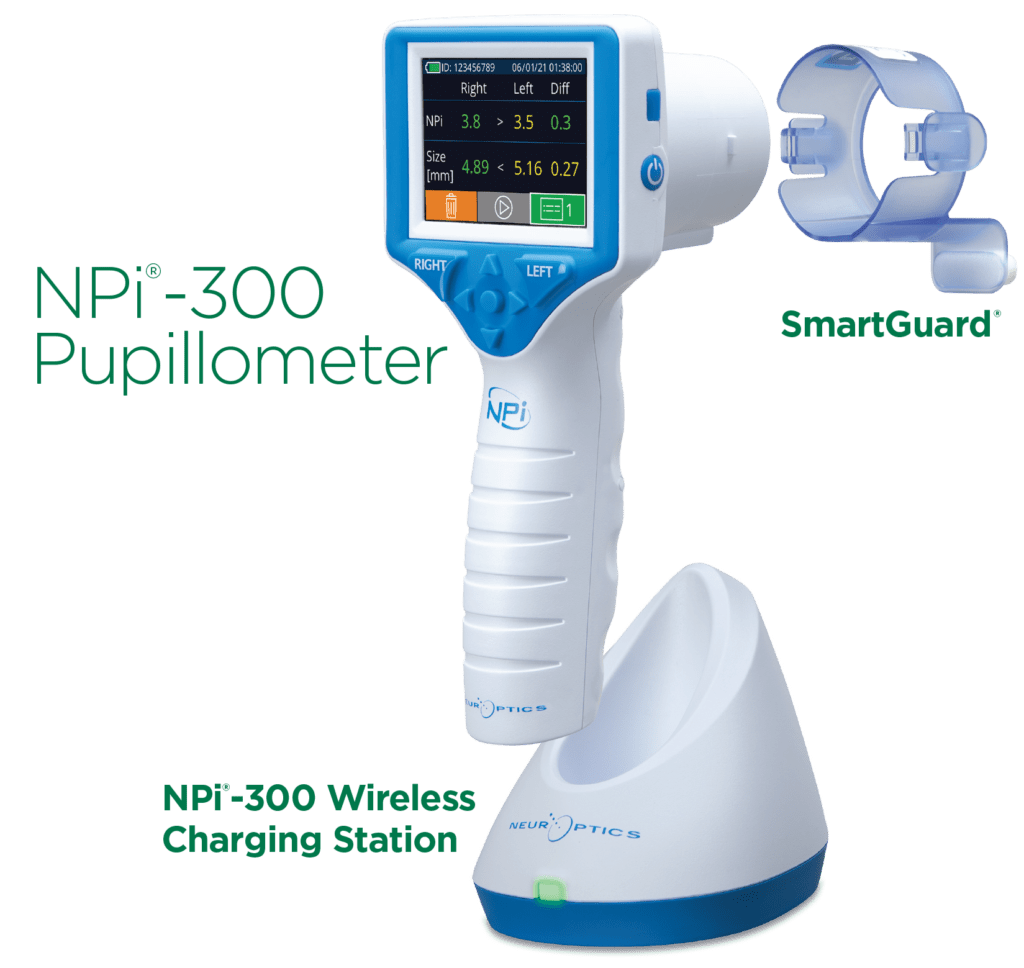The Next Generation Pupillometer for Critical Care – the NPi®-300. Learn More.
NeurOptics – The Worldwide Leader in the Science of NPi Pupillometry.
Driven by a passion to help clinicians improve patient outcomes, NeurOptics develops and markets innovative technology for use in critical care medicine, neurology, neurosurgery, emergency medicine and applied research.
50
CONTACT USRepresented in over 50 countries worldwide
1000
FIND OUT WHYAdopted in over 1,000 hospitals in the U.S.
NPi-300 Pupillometer System
An accurate, reliable and objective system that enhances pupillary assessment
CRITICAL CARE
The NPi-300 Pupillometer is a hand held device that provides accurate, reliable and objective pupil size and reactivity data, independent of examiner.
More Info
APPLIED RESEARCH
NeurOptics provides pupillometry instrumentation offering monocular or binocular for human and animal research across all research applications.
More Info



